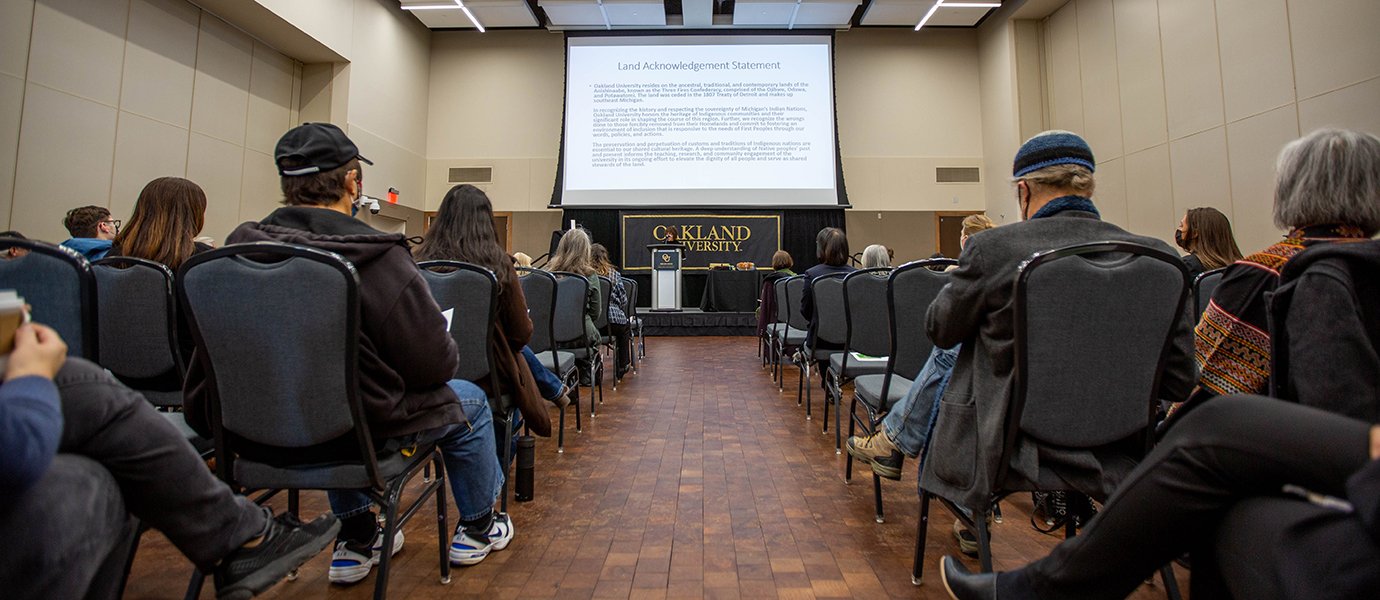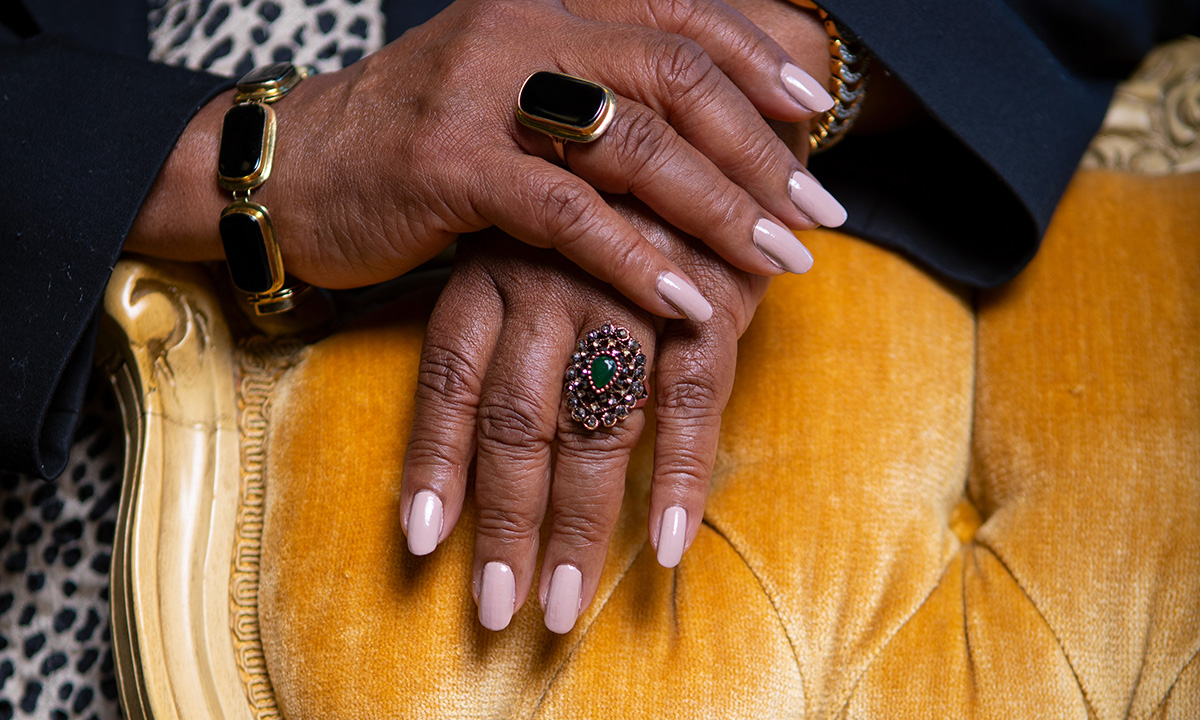A Meaningful Partnership
How an OU Honors College assignment helped lay the foundation of a partnership with native peoples

Photo provided by Tara Maudrie
Tara Maudrie, SHS ’19, is an enrolled citizen of the Sault Ste. Marie Tribe of Chippewa Indians. During her studies at the Oakland University Honors College, she was given an assignment that resulted in the writing of a Land Acknowledgement: a formal statement that recognizes and respects Native Peoples as traditional stewards of the land and the enduring relationship that exists between them and their traditional territories. Maudrie had been tuned onto the idea of Land Acknowledgements through her work with a local indigenous group and when she realized that OU did not have their own, she decided to make it the focus of her assignment, titled “Land Acknowledgments: The Importance of Acknowledging the Original People of Michigan (and Oakland University Land).” In 2021, Maudrie’s idea transformed into reality when the university approved and officially adopted the statement.
Did you ever believe that this assignment would be taken beyond the classroom?
I had recently started to work with the Detroit Indigenous Peoples Alliance and had some really great conversations with some colleagues there, including David Pitawanakwat who worked on Wayne State University’s Land Acknowledgement. To be honest, I really didn’t know if it would go anywhere, but I am really thrilled for the allies and other Native students who picked up this cause and did so much work to make it a reality.
Why is the Land Acknowledgement important, and what is your desired outcome with its ratification?
I was really pleased to see that OU gave land back to the community as a result of this. I think my desired long-term outcome is that OU continues to find ways to form meaningful partnerships with Native Peoples. Having a Land Acknowledgement is only one step toward building relationships with Native communities. I really hope that Native issues are centered in classroom conversations and that more students and faculty understand the history of this land and how it continues to impact their own relationships with Native lands.
Has the Land Acknowledgement affected Native peoples?
I think the school continuing to build relationships with the Native community by offering space for powwows, cultural ceremonies and providing meaningful outreach to Native students is really what will create change in the long term.
Since graduating from OU, what have you been doing and what are your future plans?
I moved to Baltimore, Maryland, shortly after finishing my undergraduate degree to pursue a Master of Science in public health at the Johns Hopkins Bloomberg School of Public Health. I have since finished that degree and am now working on my Ph.D. in social and behavioral interventions, also at Johns Hopkins. All of my work focuses on various aspects of American Indian health and well-being. I will likely graduate in Spring 2025 and hope to apply for tenure track faculty positions to continue to partner with Native communities on health and wellness research.
How do you continue to be involved in your Native community?
I have been an enrolled citizen of my tribal nation since birth. I serve my tribe through my appointed role as a technical adviser to the National Institute of Health Tribal Advisory Council. Prior to moving to Baltimore, I worked at Detroit American Indian Health and Family Services and continue to stay connected to community members in Detroit.
 |
| Land Acknowledgement Ceremony held at Oakland University on May 5, 2022 | Photo by John McTaggart |
While Maudrie was instrumental in bringing the OU Land Acknowledgement to fruition, there are a number of others who helped bring it to the finish line, including President Ora Hirsch Pescovitz, Executive Vice President for Academic Affairs and Provost Britt Rios-Ellis and many others who participated in the Native American Advisory Committee.


 September 1, 2022
September 1, 2022 By Rebbecca Steketee
By Rebbecca Steketee

